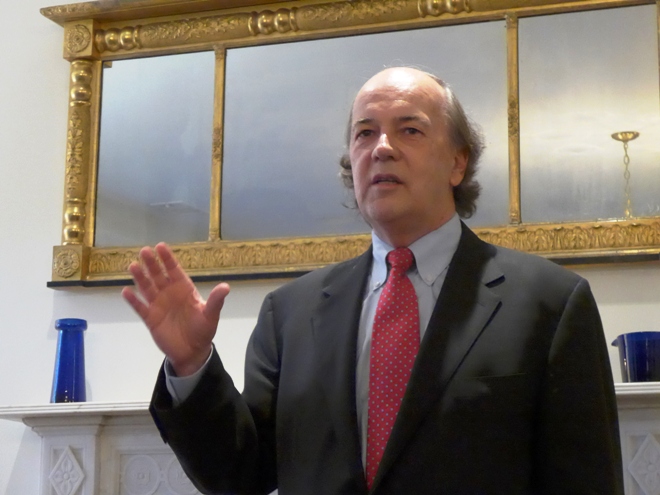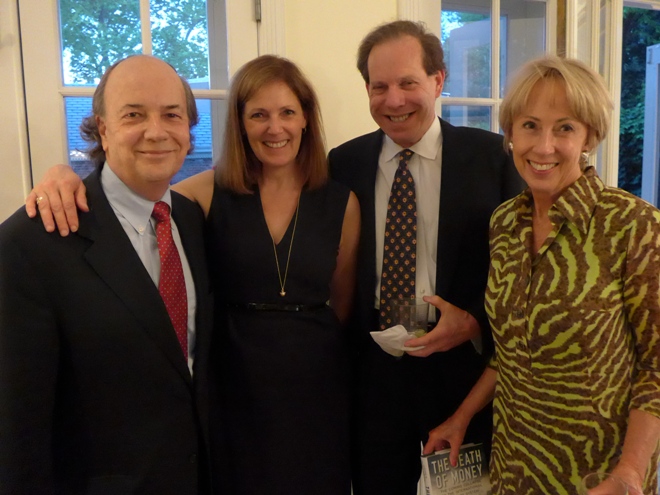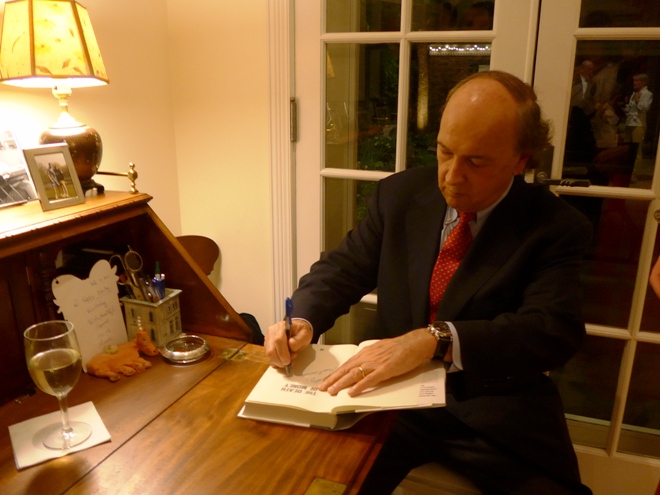James Rickards on 'The Death of Money'


"Jim Rickards has re-invented himself as an insightful analyst of the global financial system. He demonstrated that during a stimulating May Day discussion of his new NY Times bestseller, The Death of Money at our home in Georgetown." That was prominent economist John Makin, who, with his wife Gwendolyn van Paasschen, graciously hosted a cocktail party Thursday evening to celebrate the latest book by the bestselling author of Currency Wars.
Before Rickards warned of the collapse of the dollar and its global ramifications, 50 invited guests were treated to cocktails and hors d'oeuvres in the exquisite van Paasschen-landscaped garden.

In Death of Money, which reads like a tightly woven thriller, the author details pre- 9/11 insider trading, shares his role in Pentagon financial war games, demystifies Special Drawing Rights (SDR's ) currency created by the International Monetary Fund (IMF), and waxes eloquent on the power of gold.
In the last century alone, Rickards explains, the international monetary system changed three times; the first after WWI, the second after WWII (Bretton Woods agreement), and the third was in 1971 after President Nixon closed the gold window as a managed dollar devaluation.

There's misplaced confidence that central banks can save the day in the next liquidity crisis, says the author. "While we refuse to face truths about debts and deficits, dozens of countries all over the globe are putting pressure on the dollar. We think the gold standard is a historical relic, but there's a contemprary scramble for gold around the world, and it may signify a move to return to the gold standard. We greatly underestimate the dangers from a cyberfinancial attack and the risks of a finiancial world war."
The imminent threats are financial warfare, deflation, hyperinflation, and market collapse. "Only nations and individuals who make provisions today will survive the maelstrom to come."
"Whether the new monetary standard will be based on gold, SDRs or a network of regional reserve currencies remains to be seen."

Rickards recommends preparing for a monetary collapse by investing in tangible assets, starting with gold. Other suggestions include land (without the buildings), fine art, alternative funds (hedge funds and private equity funds) and cash.
From the audience, a question about bitcoins elicited an insightful comment that, like the dollar, bitcoins are digital currency and unbacked. A more secure asset, Rickards suggests, would be if the IMF moves to a gold-backed SDR.
"The fact that gold is an element is important because that means pure gold is of uniform grade and quality at all times in all places ... Gold is not a derivative, a commodity or an investment."



